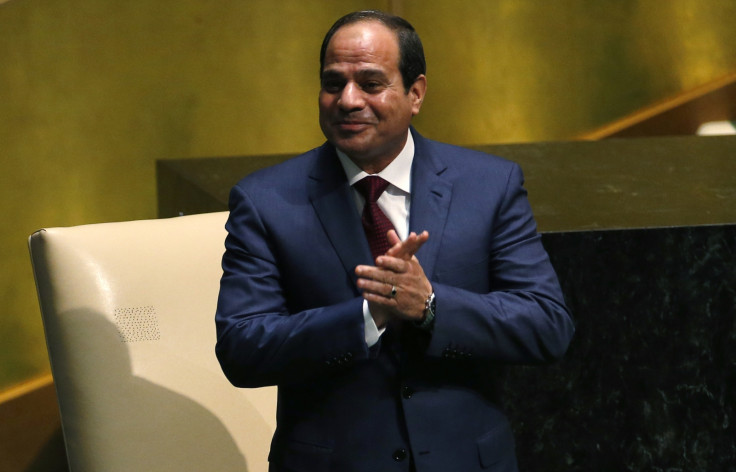Sisi's Egypt Craves Foreign Investors but Real Tests Will be Domestic

More than a year after the military coup that ousted Egypt's first elected President, the economic landscape in the country seems to have settled.
Political and security challenges remain, while the administration's attitude to social freedoms has outraged human rights organisations.
Yet, considering the chaos that has engulfed other regional players including Libya, Syria and Yemen, Egypt seems to have emerged as one of the Middle East's more attractive places to do business.
Boosted by significant financial aid from Persian Gulf states and capitalising on an initial wave of public goodwill, Egypt's President Abdel Fattah al-Sisi pushed through economic reforms that former presidents perpetually deferred.
The former army chief has slashed fuel subsidies, one of the biggest drains on the national budget, without provoking political unrest.
"I believe that removing the subsidies was the most important decision that he has taken towards economic reform," said Abu Hashima, CEO of Egyptian Steel.
"The President has set a plan to totally remove the subsidies on electricity and gas gradually over a five-year time span. This is a brave decision that all his predecessors were scared of taking."
2014 has also marked the return of the mega-project, a recurring trope in Egyptian political history.
A project to expand the Suez Canal, already a quarter complete, easily received its funding target from domestic investors and has sparked a nationalistic fervour among Sisi's supporters.
Planners say the expansion will cut waiting times from hours to three, while the volume of ships passing through is set to almost double form 49 each day.
Officials have estimated that the new canal could boost revenues to $13.5bn (£8.51bn, €10.8bn) by 2023, up from $5.1bn today.
Meanwhile, the International Monetary Fund is set to visit the country before the end of the year. While Cairo does not seem to be looking for a loan from the fund, a visit would give a stamp of credibility to Egypt's economic reforms that the country craves.
Attracting Foreign Investors
While Egypt has made economic advances, foreign investment has come from a limited range of sources - Saudi Arabia, the United Arab Emirates and Kuwait. The Gulf trio have thrown their considerable monetary might behind Sisi, largely for political reasons.
Sisi has overseen the outlawing of the Muslim Brotherhood in Egypt, a movement that the Gulf Kingdoms perceive as an existential threat.
The ex-army-chief's ruthlessness in suppressing the Brotherhood, a party to which former President Mohamed Morsi belonged, has won him support from the Gulf. However, the wider suppression of political and social freedoms in the country has also lost the President some supporters in Western countries.
High profile cases of perceived human rights violations, including the jailing of Western journalists on trumped-up charges and banning respected organisations like Human Rights are an embarrassment for the administration.
Yet, history shows that a poor human rights record rarely scares off foreign investors and Egypt is expecting to raise significant funds at an investment conference in March 2015.
While Western outrage over Sisi's authoritarianism will not encourage foreign companies to return to Egypt, Sisi's performance will ultimately be judged by Egyptians themselves.
The past four years have shown that Egyptians are politically attuned and are capable of overthrowing their leaders when they cross the line.
It appears that for now at least, most of the country is willing to accept the loss of some social freedoms in order to rally behind a leader and administration that has chosen to pursue economic reform. The test will be whether the reforms translate into tangible benefits that Egyptians can feel.
© Copyright IBTimes 2025. All rights reserved.






















